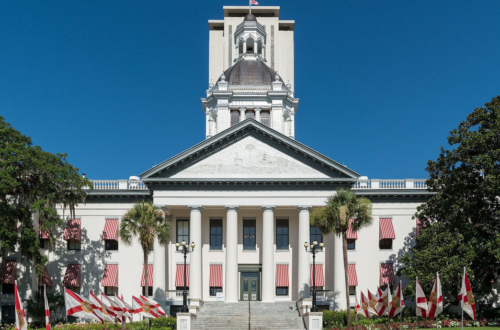Twenty Floridians with felony convictions were arrested throughout the state for voter fraud in August, sparking outrage from elected officials and community activists alike.
Some see these arrests as Gov. Ron DeSantis delivering on his promise to keep elections secure, while others insist the arrests only reveal the need for reforming a broken criminal justice system.
The manner in which the individuals were taken into custody, as well as the press conference DeSantis held in Broward County soon after, have led some to question the timing of the Florida Department of Law Enforcement’s arrests.
On Aug. 18, the 20 individuals were taken into custody, just days before the primary election. The individuals were arrested for voter fraud, a third-degree felony, in the 2020 general election. They are facing up to five years in prison and a $5,000 fine.
Joe Scott, the Broward County Supervisor of Elections, was critical of the move.
“You’re gonna send a SWAT team to somebody’s house and drag them out of the house in their underwear because they voted two years ago?” Scott said. “Are they a serious threat to society that you need to use that amount of force to go after them?”
DeSantis released a statement in the aftermath of the arrests.
“All 20 of these individuals were disqualified from voting after they were convicted of murder or a felony sexual offense, but they chose to vote anyway,” the press release read.
The affidavits of the twenty individuals paint a different picture. Many insisted they believed their voting rights were restored with Amendment 4, which restored voting rights to convicted felons under select circumstances in 2018.
The complexity of the law has caused many to misinterpret who can actually get their voting rights restored under Amendment 4. Many of those arrested stated a voting rights organization told them they could vote because of the passage of Amendment 4.
“I think the average person canvassing and trying to get people registered to vote probably does not understand all of those nuances,” Scott said.
The 20 individuals submitted a voter registration application and the state added them to the voting rolls. Years later, while verifying these rolls, the state found that the twenty arrested did not qualify under Amendment 4 to have their rights restored, and therefore committed voter fraud.
Mark Ard, director of external operations for the Florida Department of State, said voter information is verified for voter eligibility.
“The supervisor’s office utilizes available information to verify voter eligibility upon registration and may catch ineligible voters,” Ard said. “However, as courts have noted, it is easy to be put on the rolls and difficult to be removed.”
Those arrested said they received a voter registration card as a sign that they could legally vote. However, Ard said this doesn’t mean they could.
“The local supervisor’s office must send voting information and voter registration documents to the applicant as a standard procedure in response to the voter’s testament of eligibility,” Ard said. “This action does not indicate permission to vote for an individual who has obtained a voter card under false pretenses.”
To be convicted of voter fraud, there must be willful intent to act illegally. With the individuals asserting they truly believed they had the right to vote, the charges being upheld in court may have an uphill battle.
“Before you come down too hard on these people, these average citizens who may have just been confused about what the law is, maybe you should make sure that your own administration understands what the law is first,” Scott said.
The day of the arrests, Peter Antonacci, former director of the Florida Election Crimes and Security Office, allegedly told supervisors of elections that the arrests were not their fault, Scott said.
Neil Volz, deputy director for the Florida Rights Restoration Coalition, recounted stories about how these individuals felt when they voted.
“I read the affidavits… when you hear them say, ‘I felt invisible in my own community. I didn’t feel like a part of the process. And then when I was told that I was eligible to vote and I voted, I felt like a citizen for the first time in my life,’” Volz said.
The FRRC refers to them as “returning citizens” and not felons because of the connotation the latter may hold.
“We think that the use of the word ‘returning citizen’ is a more accurate reflection of our experience as people with past convictions and we also know that words matter and how we identify ourselves and others is an important part of being in the community,” Volz said.
The FRRC has been involved from the beginning of the controversy, raising money for bail and attorney fees.
“Immediately, we knew the best thing that we could do to help the individuals who are in this situation was to try to get them out of jail and to make sure that everybody has their constitutional right to legal counsel,” Volz said.
The FRRC is committed to fighting for reforms to prevent this from happening to more returning citizens, Volz said.
“There are two different things here,” Volz said. ”One is the management of the voter rolls and then the arresting of people assuming intent.”
With the gubernatorial election in a little more than a month, the fates of these individuals might rest on who comes out ahead in November. In the meantime, the FRRC will remain focused on seeing these reforms enacted.
“If you can’t trust the state to provide voter verification, who can you trust?” Volz said.
Check out other recent articles from the Florida Political Review here.
Featured image: DeSantis at his press conference in Broward County to announce the twenty arrests for voter fraud (Public domain)
Correction: October 16, 2022
This article previously attributed the voter fraud arrests to the Election Crimes and Security Office, however the arrests were carried out by the Florida Department of Law Enforcement.





